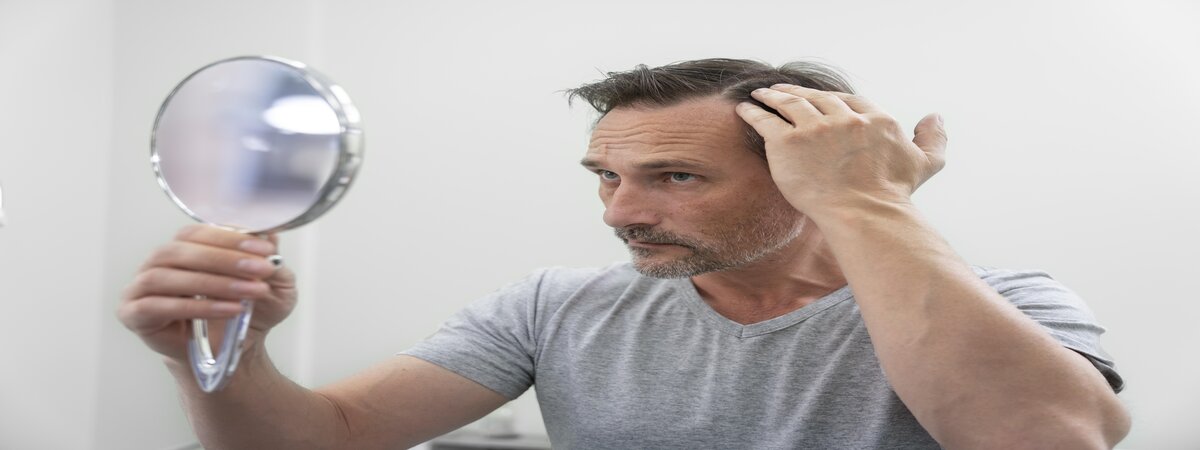
Understanding Alopecia: Causes, Symptoms, Solutions
Noticed a bald spot on your scalp? Or maybe your eyebrows are thinning out of nowhere? That could be alopecia areata, and yeah, it can throw you for a loop. As a dermatologist, I’ve seen how hair loss can mess with your confidence, and I’m here to lay it all out—what it is, why it’s happening, and how you can deal with it. Let’s cut through the noise and get you feeling like yourself again.
What’s the Deal with Alopecia Areata?
Alopecia areata is an autoimmune thing—your immune system gets confused and starts picking on your hair follicles, causing hair to fall out. It might show up as a few round bald patches or, in some cases, lead to losing all the hair on your scalp or body. About a million people in the UK are dealing with this, and it doesn’t care if you’re young, old, a guy, or a gal—it can hit anyone.
Why’s Your Hair Bailing on You?
So, why’s your immune system suddenly beefing with your hair? We don’t always know the exact trigger, but here’s the rundown:
-
Autoimmune vibes: It’s like your body’s defense squad mistakes your hair follicles for the bad guy, similar to what happens in conditions like vitiligo, lupus, or thyroid issues.
-
Family ties: If alopecia runs in your family, you might be more likely to deal with it.
-
Stress factor: Stress doesn’t cause it, but it can crank up the volume on your symptoms.
Just to clear things up—having another autoimmune condition doesn’t mean you’re doomed to get alopecia. It’s just a pattern we notice sometimes. We’re here to figure out what’s going on with you.
What’s It Like to Have Alopecia?
Here’s what you might see:
-
Round bald patches popping up on your scalp or body.
-
Hair thinning all over, sometimes called diffuse alopecia.
-
Losing all the hair on your scalp (alopecia totalis) or everywhere (alopecia universalis).
But let’s not sugarcoat it—alopecia isn’t just about your hair. It can hit you hard emotionally. Your hair’s a big part of your vibe, your style, who you are. Losing it can make you feel exposed or like you’re fading into the background. Some folks feel anxious, down, or even avoid going out. That’s real, and it’s okay to feel that way. You don’t have to bottle it up.
How Do You Deal with Alopecia?
Managing alopecia is about feeling good in your skin, whether your hair’s there or not. Here’s how we can make that happen:
1. Handle the Emotional Weight
Hair loss can stir up some heavy feelings. Here’s how to lighten the load:
-
Talk about it: Spill your thoughts to a friend, family, or a therapist. Just getting it out can feel like dropping a weight.
-
Find your people: Alopecia support groups are full of folks who know exactly what you’re going through. They’ve got tips, stories, and a whole lot of understanding.
-
Cut yourself some slack: Feeling bummed or frustrated? That’s normal. You’re not “overreacting”—you’re just human.
2. Get Creative with Solutions
There are some cool ways to rock your look while dealing with alopecia:
-
Wigs or scarves: These are your chance to play with colors, patterns, or vibes that scream you.
-
Brow game: If your eyebrows are thinning, try pencils or microblading to bring them back.
-
Scalp care: Stick to gentle, fragrance-free products to keep your scalp from getting cranky.
3. Check Out Treatments
Some cases of alopecia clear up on their own, especially for women, but others need a nudge. Here’s what we can do:
-
Corticosteroids: Creams or shots to chill out your immune system and help hair grow back.
-
PRP therapy: Uses your own blood to wake up those hair follicles—pretty wild, right?
-
Hair transplants: If the hair loss is permanent, we can move hair to where you want it.
-
Meds: We might try drugs to calm your immune system, customized for you.
If your hair started falling out fast, don’t sit on it—come see us. Sudden changes could mean something else is up, and catching it early is key.
Quick Tips for Handling Alopecia
-
Guard your scalp: Slap on sunscreen or a hat to protect bare spots from the sun.
-
Switch up your style: Try bold makeup or accessories to highlight what you love about your look.
-
Track it: Jot down when your symptoms flare to spot triggers like stress or certain foods.
-
Link up: Jump into an online or local alopecia group for ideas and support.
Why Come to Us?
At our dermatology clinic in London, we’re not just about fixing hair loss—we’re about you. Our board-certified dermatologists know alopecia inside and out, but we also know how personal this is. We listen, we explain things in plain English, and we build a plan that fits your life. Folks tell us they leave our clinic feeling heard and hopeful, and that’s what we’re all about.
Whether you’re stressing over new bald patches or feeling lost with total hair loss, we’ve got you. We mix the latest treatments with a real, human approach to help you feel like yourself again.
Want to Get a Handle on This?
If you’re wondering what’s up with your hair or just want to feel more confident, let’s sort it out together. Grab a spot to talk with our team today, and we’ll figure out what’s going on and how to make it better. No fluff, no pushy vibes—just a plan that works for you.
FAQ
Is alopecia only hereditary?
No, while it can be hereditary, alopecia can also result from autoimmune factors or other unknown triggers.
Can stress cause alopecia?
Stress is believed to be a potential trigger for alopecia areata in some cases, but it’s not the sole cause.
Are there natural remedies for alopecia?
Some people explore natural remedies like essential oils or dietary changes, but their effectiveness varies from person to person.
What’s the role of diet in alopecia?
A balanced diet rich in nutrients can support hair health, but it’s unlikely to be a sole solution for alopecia treatment.
How do I choose the right wig or hairpiece?
Consider factors like material, fit, and style. Consult with a wig specialist for personalized advice.
Are there any breakthrough treatments for alopecia?
Promising treatments like PRP therapy and hair transplants have shown positive results, but consult a dermatologist for the latest options.


